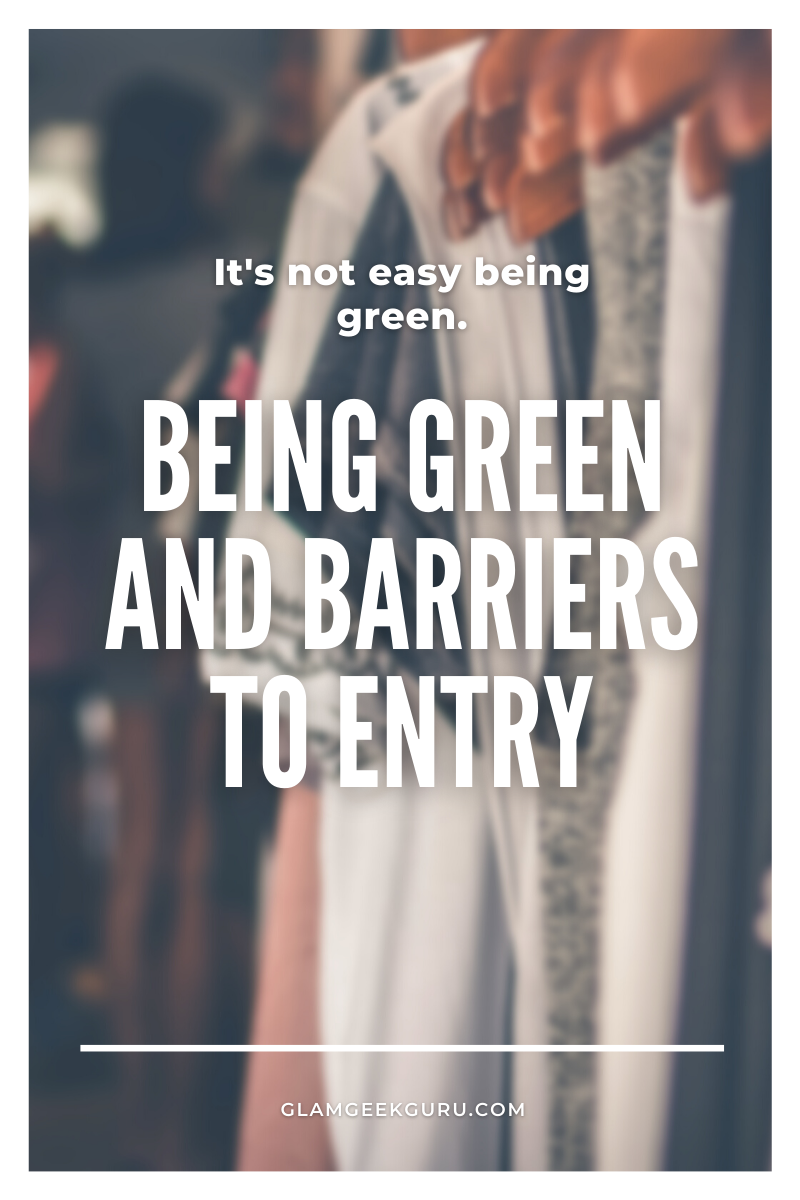Sometimes, it really isn’t easy being green.
More and more people these days are looking into how they can live a more sustainable or eco-friendly lifestyle, which is great! But, for a good chunk of people, it ends at the beginning. They get so excited, and do all this research into what they can do to help the environment, and then they find out, “wow, this is more difficult that I thought.”
That’s because the most common barrier for entry to an eco-friendly lifestyle is green of another kind: it can be expensive as hell.
Sure, we can recycle (if your place of residence offers it) and we can upcycle (who knew there were so many different ways to use soup cans?) But when it comes to our shopping habits, making the switch to greener alternatives can be tougher than a two dollar steak (but apparently it’s better for the environment to eat less meat anyway!)
Let’s say you wanna shop for clothes from a more sustainable brand. A quick google search of “sustainable clothing brands” yields these top results:
Everlane, Reformation, and Cuyana.
Now, these are not budget-friendly brands. A pair of jeans from these brands will cost you $78 at Everlane and $98 at Reformation (Cuyana doesn’t sell jeans, but a pair of leggings will set you back $95.)
These are the cool, trendy brands we see all over Instagram. If you can afford to replace your old clothes with some from one of these more sustainable brands, power to you.
But, if you’re like me (and most regular people who can’t afford to drop almost $100 on one piece of clothing) the more viable options here are as follows:
1. Thrifting
We all know about thrifting. It’s now super trendy to post your vintage finds on IG or even run a shop where you resell some of your thrift store finds to make some quick cash. Because it’s become so trendy, it might be harder to find items that are on trend (or to your personal style) or items that are in your size.
Thankfully, there are an abundance of online shops where you can look for thrifted or vintage clothing; and through those, you’re helping the environment (giving clothes a second life) and helping a small business (which is always good!)
2. Wear. It. Out.
If you have to shop “fast fashion” for any reason, try to make sure it’s something you’ll wear for years to come. Sure, that black leather halter vest is cute, but outside of Coachella are you ever going to wear it again?
Having clothes from seasons or trends past is nothing to be ashamed of. It’s budget-friendly AND eco-friendly, and if you feel comfortable wearing it, then wear it! Life is too short not to wear those old bootcut jeans from the early 2000s that you love.
3. Show some love
Once you’ve worn those clothes into the ground, you can repair them (learning to hand-sew is fun and useful if you don’t have a sewing machine, or take them to a seamstress/cobbler if you’re dealing with a run down pair of favorite shoes) upcycle/alter them (turning that shirt into a crop top with a matching headband, those jeans into cutoff shorts, etc) or donate them to a local charity that’s accepting them (only if they’re still wearable! Please do not give clothes that are completely unwearable to charity!)
4. Look for the hidden gems
There are some brands out there that are more affordable than Reformation that are still sustainable/eco-friendly. One of my personal favorites is Pact, their stuff is all organic cotton, and their basics are cheaper than what you’d find at Madewell or Everlane.
And then of course there are the brands whose profits go to different organizations or charities, or who have a one for one giving model (like Tom’s back in the day, or Bombas now. Bombas might feel pricey, but personally I love mine and would replace most of my socks with them if I could.)
All in all, the first question you should ask yourself when shopping is “do I really need this?” and then you can consider the impact of that purchase on the environment.
Asking that first question every time you see a cute trendy outfit at Forever 21 or Pretty Little Thing can both save you money and help the environment, while shopping just to shop (even if it’s a sustainable purchase) still has the potential to do harm in the end, if you don’t actually use/wear what you bought.
So with all this in mind, may you make purchases that make a difference.
Selected quote: “You don’t care about the environment? That’s f***** up man!” – 21 Jump Street
